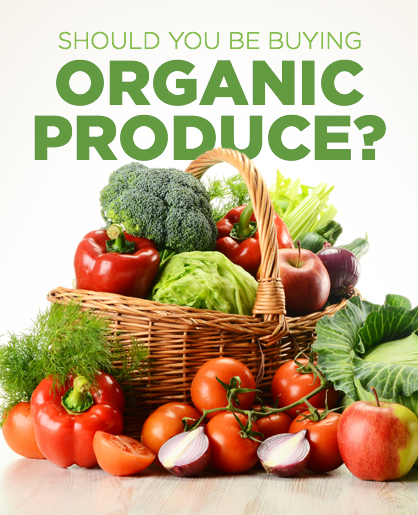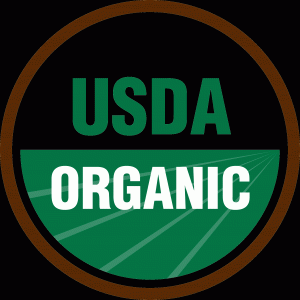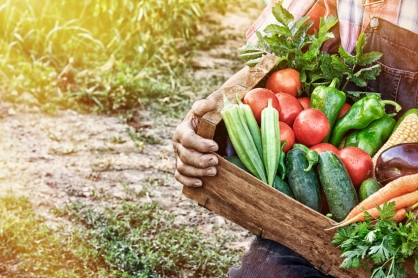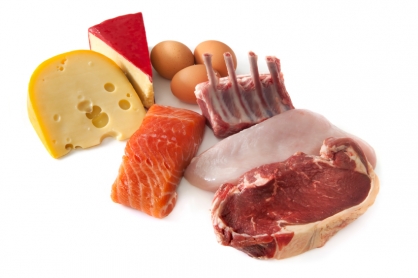Is Organic Worth the Cost?
The dirty dozen to avoid
If you ask the average person if you should buy organic food, they would immediately tell you yes. That's because there’s been a plethora of marketing to push the concept of organic food. It’s supposed to be better for you, the environment, and necessary for a healthy diet.
This isn’t exactly wrong information, but it’s a generalization that doesn’t always hold true. One way to buy healthy fruits and vegetables is to shop your local farmer’s market. Even if a farm isn’t Certified Organic by the USDA, it might still very well avoid the use of dangerous pesticides. And keep in mind that even organic farms still use some pesticides, just the ones that the organization has deemed safe for consumption, as per this article in Scientific American.


What organic really means
Whether or not to buy organic is a hot topic that has seen much debate. According to Sadie Dahlk, RD, LDN, CNSC, CSO, nutrition manager and registered dietician at Cancer Treatment Centers of America at Midwestern Regional Medical Center, when it comes to the health benefits of eating organic versus conventionally grown foods, studies do not show any direct outcome that eating organic prevents disease and/or cancer. Instead, it is more important to focus on eating fruits and vegetables and have a well-balanced diet.
But what exactly is organic? Nutritionist Bonnie Taub-Dix, MA, RD, said, “Organic foods have been produced without the use of synthetic pesticides, herbicides, fungicides, or synthetic fertilizers, and cannot be genetically modified or radiated. Organic poultry, dairy, meat, and eggs are produced without the use of growth hormones or antibiotics, and are humanely raised and slaughtered. This definition does not, however, reflect the nutritional value of the food.”
“Pesticides can be absorbed into fruits and vegetables. The Environmental Working Group (EWG), a nonprofit, nonpartisan organization, analyzed more than 51,000 USDA and FDA tests for pesticides on 44 popular produce items and created a list referred to as the “Dirty Dozen Plus” to help identify the types of fruits and vegetables that were most likely to contain higher amounts of pesticides. They also crafted a list called, the “Clean Fifteen,” representing produce that may be conventional, more affordable, and may carry less pesticide residues.

Fruits and vegetables
Almost every fruit or vegetable in the grocery store is available in organic and non-organic varieties. Generally the organic produce is nearly twice the price of the non-organics. So how do you choose?
Buy these fruits and vegetables organic:
- Apples
- Sweet bell peppers
- Celery
- Cherry tomatoes
- Cucumbers
- Cherries
- Grapes
- Kale/Collard greens
- Hot peppers
- Nectarines
- Peaches
- Pears
- Potatoes
- Red raspberries
- Spinach
- Snap peas
- Strawberries
These foods include fruits and vegetables that are most contaminated with pesticides.
You’re safe buying these products non-organic:
- Avocados
- Sweet corn
- Pineapples
- Cabbage
- Sweet peas (frozen)
- Onions
- Asparagus
- Mangos
- Papayas
- Kiwi
- Eggplant
- Grapefruit
- Cantaloupe
- Cauliflower
- Sweet potatoes

Meat and dairy
Meat and dairy products have come under a lot of scrutiny in the last few years by people looking to eat healthier and better. Consumers are not satisfied with just beef, or just milk, they want to know what the cow was fed, if it was treated with antibiotics or hormones, and if it was treated humanely during it’s life. There are so many marketing terms around meat and dairy now. Think “free-range”, “grass-fed”, “hormone-free” and of course “organic.” Many of these terms fall under the umbrella of organic because the USDA is quite strict in their regulations of organic meats. Farmers must feed their livestock 100% organic feed, allow the animals to graze and grow according to their natural habitats, and must not administer hormones or antibiotics. The same goes for milk, yogurt, and eggs.
This means that they are worth the cost if you are concerned about additives and chemicals in your meat and dairy.
Overall, when making the decision to shop for organic foods take a few minutes and research what it really means. It will save you both time and money. Consider finding a local farm for your fruits and vegetables, and even your meats. If you lower your consumption of processed and packaged foods you will cut your grocery bill and increase your health. Navigating the organic labels can be a confusing minefield, but if you know what you’re looking for you can make the right choices for your family and not blow your budget.
Tagged in: nutrition, organic, produce, non-organic,



